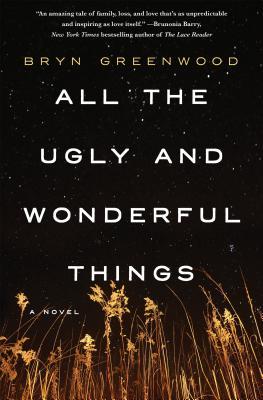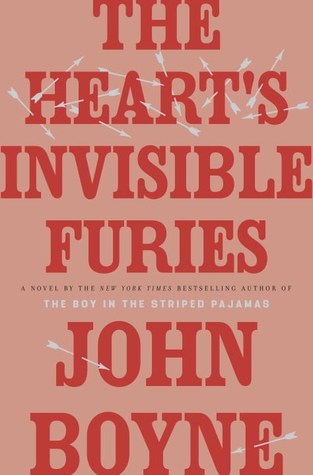Synopsis
In 1788 three men converge in the southern woods of what is now Alabama: Cat, an emotionally scarred white man; Bob, a garrulous black man fleeing slavery; and Istillicha, who seeks retribution after being edged out of his Creek town’s leadership.
In the few days they spend together, the makeshift trio commits a shocking murder that soon has the forces of the law bearing down upon them. Sent to pick up their trail, a probing French tracker named Le Clerc must decide which has a greater claim: swift justice or his own curiosity about how three such disparate, desperate men could act in unison.
Katy Simpson Smith skillfully brings into focus men whose lives are both catastrophic and full of hope—and illuminates the beating heart of a new America. A captivating exploration of how four men grapple with the importance of family, the stain of guilt, and the competing forces of power, love, race, and freedom.
Hardcover, 368 pages
Expected publication: February 16th 2016 by Harper (first published February 9th 2016)
ISBN 0062407597 (ISBN13: 9780062407597)
About the Author
This story is based on actual documented historical characters:
About this time, a bloody transaction occurred in the territory of the present county of Conecuh...The party consisted of a Hillabee Indian, who had murdered so many men, that he was called Istillicha, the Man-slayer-- a desperate white man, who had fled from the States for the crime of murder, and whom, on account of his activity and ferocity, the Indians called the Cat-- and a blood-thirsty negro, named Bob.Bob is a black slave who escapes from his Spanish master in Pensacola, Florida, leaving behind his wife Winna and daughters to seek his freedom. Bob and Winna didn’t choose one another, but were put together by his master, after Bob was denied the woman he loved to begin with. On the run, he meets up with a white man called Cat who has labeled himself a killer, as well as a Muskogee Indian by the name of Istillicha, or "Man-slayer".
-- Albert James Pickett, History of Alabama, and Incidentally of Georgia and Mississippi, from the Earliest Period (1851)
Cat is a rather enigmatic character, not speaking much of his past, but Istillicha is seeking revenge of the woman who wronged him. The three join up together and wind up involved in a mass murder and robbery, which leads to them being hunted by a Frenchman by the name of Le Clerc who has been living with Creeks (otherwise known as Muskogee, the same tribe as that of Istillicha), where he has been documenting "the divergences of man". Le Clerc has a history as a bounty hunter, and meter of justice, all while studying the very men he is hunting.
Each one of them has some sin in his heart he wouldn’t wish me finding. But my primary role is not that of embodied justice but exploration. If they knew me better-- if anyone did, from my mother to my wives to these half strangers-- it would be evident that I merely wanted to understand them.The book shifts perspectives between these men, as well as that of Bob's wife Winna. Bob begins with his story as a young slave boy and life with his mother and big brother in Virginia. He is later sold, and finds himself in Pensacola, owned by a master who decides to pair him up with a female slave from a neighboring plantation. Bob and wife Winna make due, finding a certain comfort and solace in one another, but Bob is restless. He remembers his brother's tales of freedom and of a black man on a donkey.
"When it's you and your donkey and that wide-open land, can't nobody stop you and say 'This is mine' or 'This ain't yourn'."Eventually he gains his master's trust and is given the freedom to ride a horse to trade rum with the Creeks, taking him from the plantation for days at a time. This trust and freedom is what allows Bob to escape undetected one day.
Oh, this is such a hard review for me. I wanted to love this book. I was introduced to the author through her last novel The Story of Land and Sea, which I enjoyed, and I'm a fan of slave narratives and southern lit. But this is a tough one for me. At times there was beautiful prose, and other times it was very trying and even boring.
The narrative of Cat (which was unfortunately one of the longest chapters) was very difficult for me to get through. The writing used to relay his tragic narrative was stilted and draining, and oftentimes rambling. I know it is symbolic of his mind, and a useful tool toward that end, but knowing that didn’t make reading it any easier. But then I really enjoyed reading Winna’s narrative, as well as Istillicha. Le Clerc and Bob were okay, but Cat was almost unbearable. If I hadn’t had a commitment to read the book, I may have given up on it during Cat's long period. And that would have been a shame, because it would have meant missing out on Winna, and Istillicha, and a really clever story wound up in there.
I know a lot of this is my own fault. I’m a relatively lazy reader. I don't want a challenge. I don't like to read a book heavily symbolic or laden with descriptive text. I'm not going to read a lot of the classics for that reason. I don't care for stilted writing (which is what most of Cat's narrative was), which is why I have yet to get through Cormac McCarthy's The Road. I just like a good story to get lost in. This book wasn't a victim of “bad” writing, but much of it simply wasn't "fun" for me. I just didn’t enjoy reading half of the story. Much of the time it felt arduous, like a textbook. I had to trudge through Cat's chapter like it was quicksand. The first half of the book was a trial; the second half was a pleasure.
I would like to thank TLC Book Tours for including me on this tour. Check out the website for the full tour schedule.
My final word: I'm so torn. I recognize what a clever story this was, and how inspired. It was full of emotion and compassion, heartache and tragedy. And ironically, despite the fact that I barely made it through Cat's narrative, he actually wound up being my favorite character: the boy who only wanted to be loved. So the author was very effective in her writing, and I grew to love him despite myself. A religious theme develops throughout the story, one of redemption and sacrifice and forgiveness. So it comes down to this: If I were rating this book based on my enjoyment of it, I'd probably give it a B-. I just didn't enjoy it enough. But for the author's clever weave of the story, for her effectiveness in getting me to care so much for Cat, and her development of the characters...for that I have to boost my rating to a solid B+. Muted and austere, it was a good effort full of heart.
My Rating:
The Cerebral Girl is a forty-something blogger just digging her way out from under a mountain of books in the deep south of Florida.
I received a copy of this book to review through TLC Book Tours and the publisher, in exchange for my honest opinion. I was not financially compensated in any way, and the opinions expressed are my own and based on my observations while reading this novel. The book that I received was an uncorrected proof, and quotes could differ from the final release.























No comments:
Post a Comment